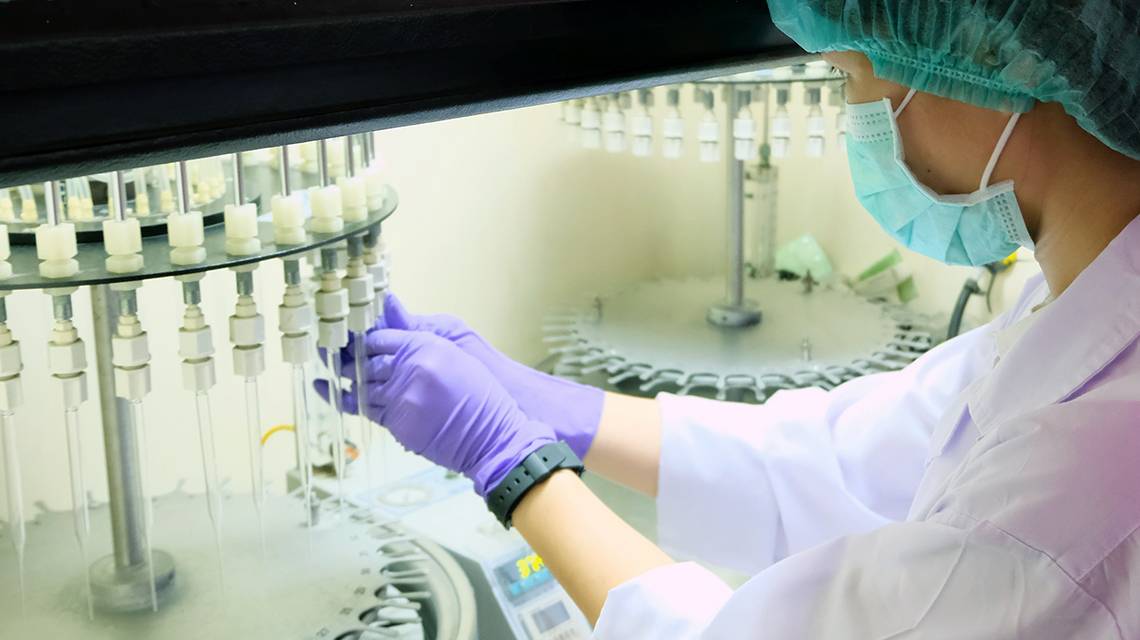Thailand is able to keep exporting a wide range of food products thanks to a four-year collaboration with the IAEA and the Food and Agriculture Organization of the United Nations (FAO) to help the country ensure reliable food safety testing and surveillance, using nuclear techniques.
Between 2016 and 2018, a major food safety control laboratory in Thailand encountered difficulties in testing animal food products for residues of veterinary drugs and related contaminants following tightening of food quality and safety requirements in the country’s major export markets. It turned to the IAEA for support. In partnership with FAO, the IAEA embarked on a four-year laboratory capacity enhancement and training programme in the use of nuclear and isotopic techniques that facilitate quick screening and identification of chemical residues and contaminants in food. The training and laboratory equipment provided under the IAEA’s technical cooperation programme have enabled Thailand’s authorities to address the new requirements in its key markets and continue exporting food, including an estimated 900 000 tonnes of poultry products, 3000 tonnes of honey and honey products.
“Our food safety laboratory detection capabilities have greatly improved thanks to the IAEA and FAO,” said Apichaya Sungthong, Medical Scientist and Analyst at the Veterinary Public Health Laboratory of the Bureau of Quality Control of Livestock Products (BQCLP), which is the official laboratory serving the nation’s competent authority on food safety. “We can more effectively help Thailand to ensure that food products are well controlled and safe from farm to fork.”
Thailand is one of the largest food exporters in Asia. To maintain and grow its export-based economy, it must meet evolving safety and testing standards.
“Increasing consumer-awareness, stringent food safety standards and guidelines on national and international markets along with advances in analytical technology require that laboratories are better equipped and analysts update their knowledge and skills,” said James Sasanya, Food Safety Specialist at the Joint FAO/IAEA Division of Nuclear Techniques in Agriculture.
At the BQCLP laboratory more than 21 analysts were trained on the use of isotopic and radio receptor assay techniques (see Radio receptor assays) through the IAEA technical cooperation programme. Scientists were also provided with and trained in analytical-method protocols and standard operating procedures for food safety testing. Further training and guidance were offered on techniques for sampling and laboratory quality management as well as identification and effective implementation of appropriate proficiency testing schemes. The laboratory also received a range of equipment and devices, stable-isotope standards, test kits and related supplies.







